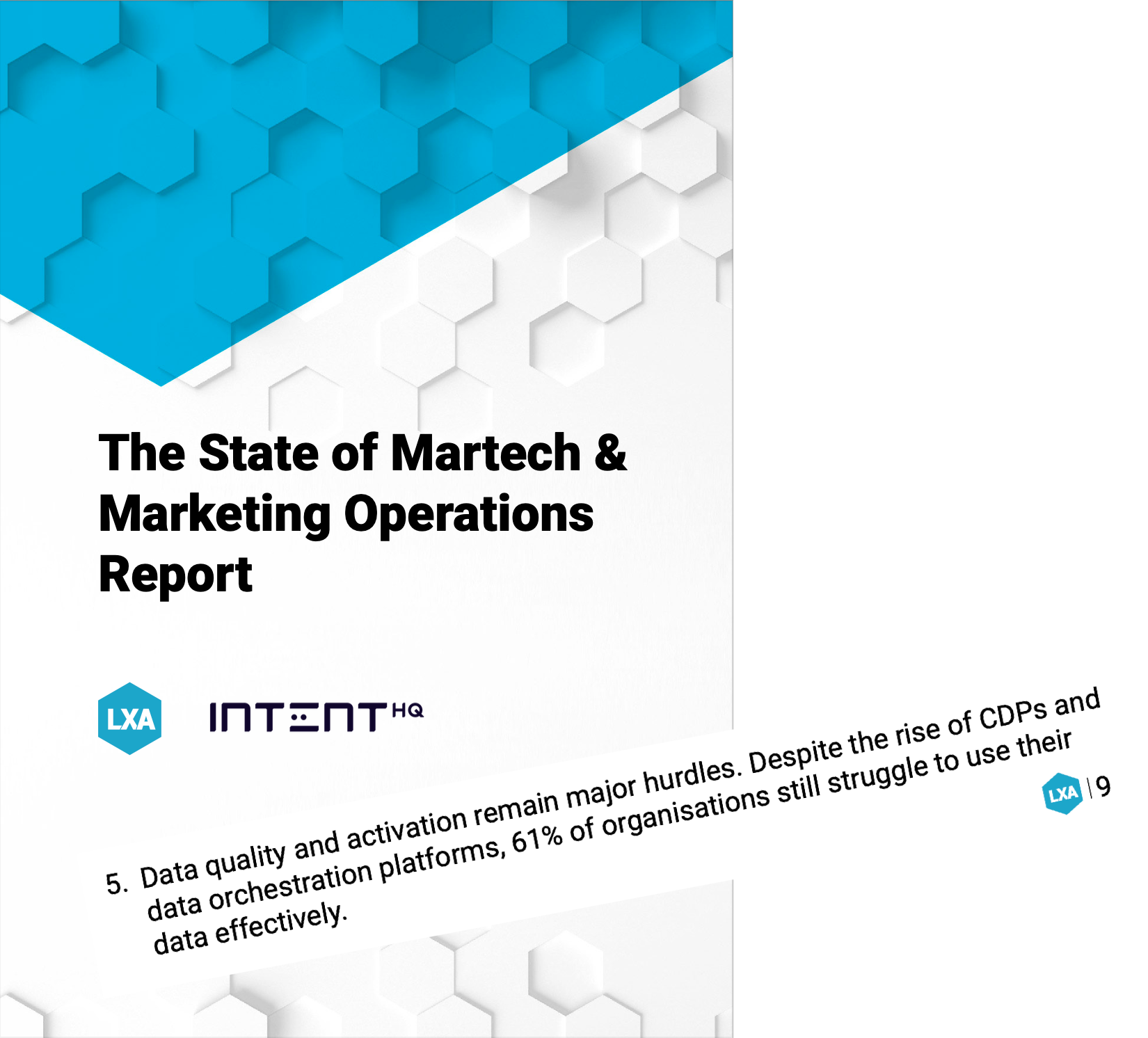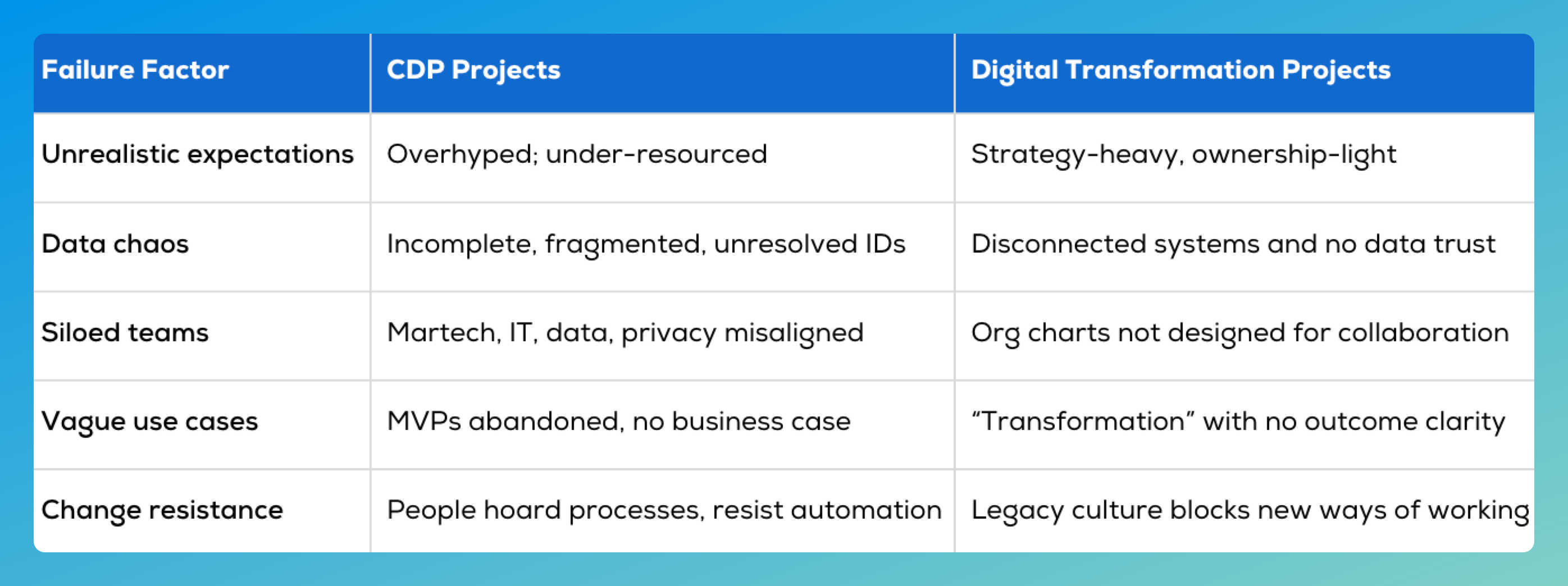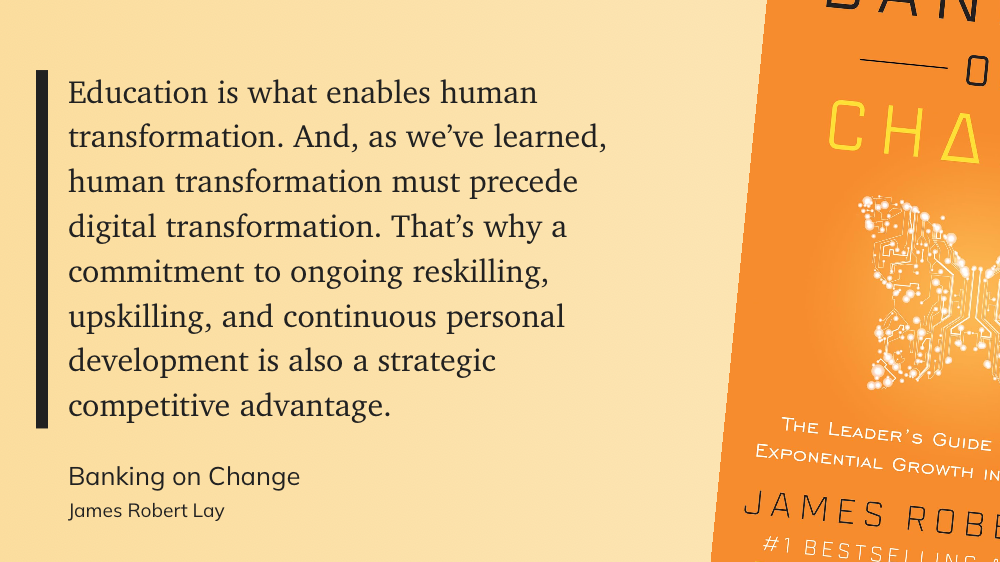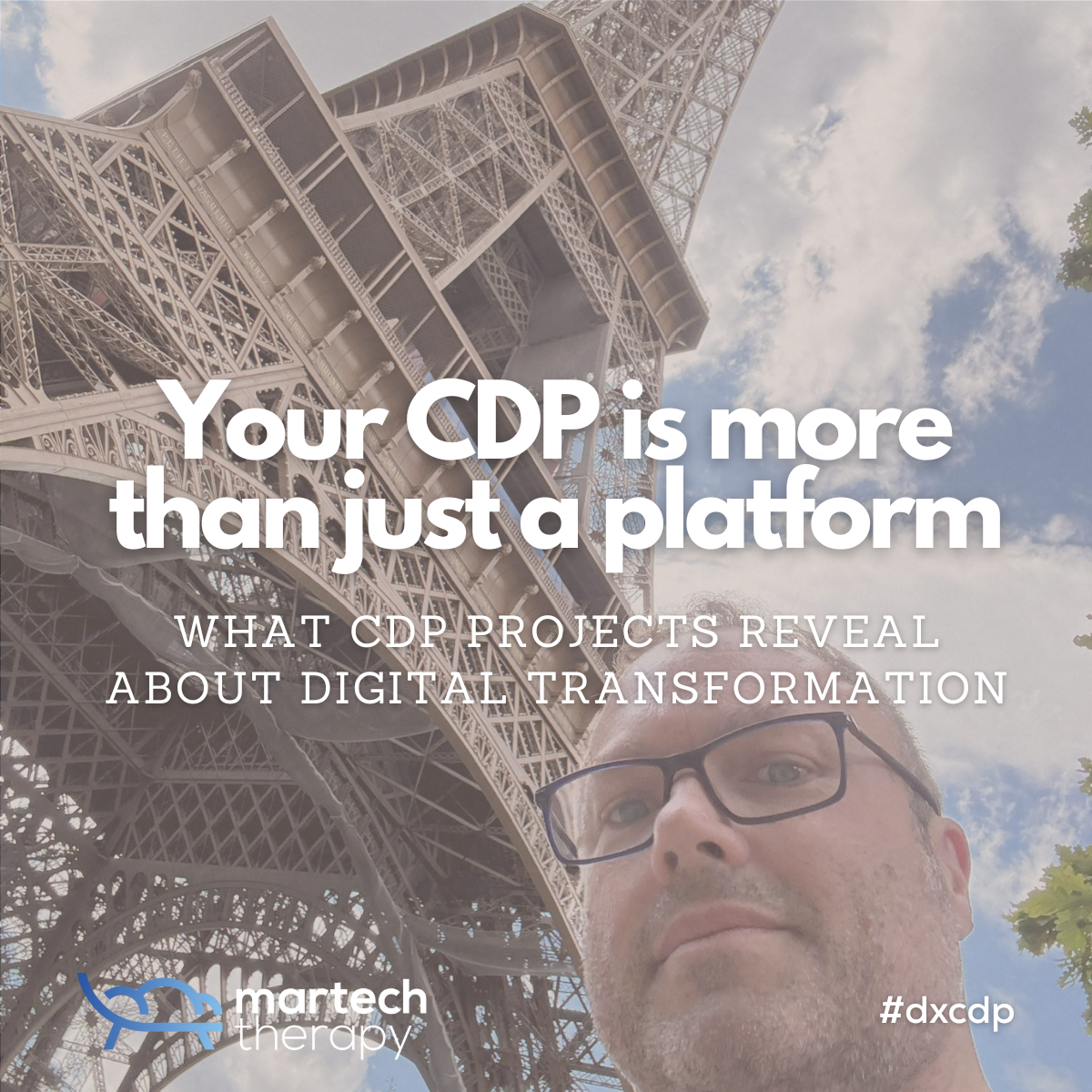I just got back from a family trip to Paris, which was mostly great except for the hour I spent in a queue under the Eiffel Tower with my daughter constantly requesting more screentime on her phone, my wife and son (afraid of heights… like me) trying to find shade at a local cafe, and my brain, entirely on its own, thinking about CDPs and digital transformation. Because of course it did.
That moment, standing between chaos and culture, reminded me that CDP implementations are like tiny, well-lit previews of the digital transformation mess most companies are too scared to look at directly. If your CDP rollout is going sideways, chances are your transformation dreams are headed the same way, just more expensively and agonizingly slowly 🐌
The false promise of platform fixes
We’ve all seen the cycle: new platform, big promises, a few hopeful decks, and then six months later… disillusionment. CDPs have followed that pattern too often. Despite their strategic potential, most don’t deliver because the organization around them can’t.

LXA’s 2025 State of Martech & Marketing Operations survey found that 61% of organizations still struggle to effectively activate their data, despite widespread CDP adoption and the emergence of composable stacks. That gap isn’t about software. It’s about structure, ownership, and follow-through… things under human control. The CDP makes those dynamics visible, and the stacks continue to grow.
CDPs surface the truth faster
Digital transformation is broad and slow-moving. CDPs are compact and immediate. They force decisions quickly such as:
- Who owns identity?
- What’s the definition of consent?
- Which data is reliable?
- How do we activate use cases across silos?
…and more
If you’ve tried to implement a CDP and discovered internal blockers, misaligned teams, unclear KPIs, or suddenly everyone pointing fingers at data quality, I want you to know that, first and foremost, that’s not a failure. That’s honest feedback. That’s your organization showing you, very efficiently, what will also derail your next big transformation initiative.
David Chan captured this perfectly in 2024 when he wrote in his “Why do most CDP projects fail?” post on Medium:
"Most CDP projects fail because companies skip the hard parts: designing the operating model, managing expectations, and investing in internal readiness."
LXA’s report backs that up. It describes CDPs as reflections of the broader martech stack. If the CDP doesn’t work, the rest likely won’t either. It’s a mirror, not a mistake.
Failure patterns match almost perfectly
Let’s compare CDPs and full-scale digital transformation efforts. Both promise a lot. Both tend to underdeliver. And both fail for almost identical reasons:

The only real difference? CDPs surface these problems in months. Transformation projects take years, and millions, before anyone admits they’re broken.
The stress test metaphor
So what if we stopped treating CDPs as magic data platforms and started seeing them as stress tests for organizational readiness?
They’re just big enough to touch everything that matters, data, identity, privacy, content, orchestration, but small enough to implement in a reasonable timeframe and require a considerable investment. If your organization can’t align across teams to activate even two CDP use cases, why would a full-blown digital transformation work any better?
LXA hits this point hard:
“Operational maturity in martech increasingly depends on how well organisations can align teams, data, and goals, not just how many tools they have.”
It’s about the “connective tissue” between strategy, execution, governance, and capability. A CDP implementation stretches that tissue just enough to see where it tears.
That’s useful.
And if you're seeing signs such as fractures in ownership, stalled activation, questionable data, or no time for governance, those are transformation warnings. And the good news? It’s not too late to do something about it.

As James Robert Lay, author of Banking on Change, puts it, education is what enables human transformation, in and of itself (and in my personal opinion) a prerequisite for digital transformation.
A quick note, in case this feels familiar
If you’re stuck in the CDP fog, wondering if it’s the platform, your team, or your roadmap, I help companies work through exactly this. Sometimes that means diagnosing the organizational tensions. Sometimes it’s getting use cases moving again. Occasionally, it’s helping teams admit they skipped a few steps.
No drama. Just help.
And now, if you’ll excuse me, I have a stack of Eiffel Tower souvenir photos to delete.
Or subscribe for free to follow my thoughts and opinions on Martech 👇🏻



Discussion